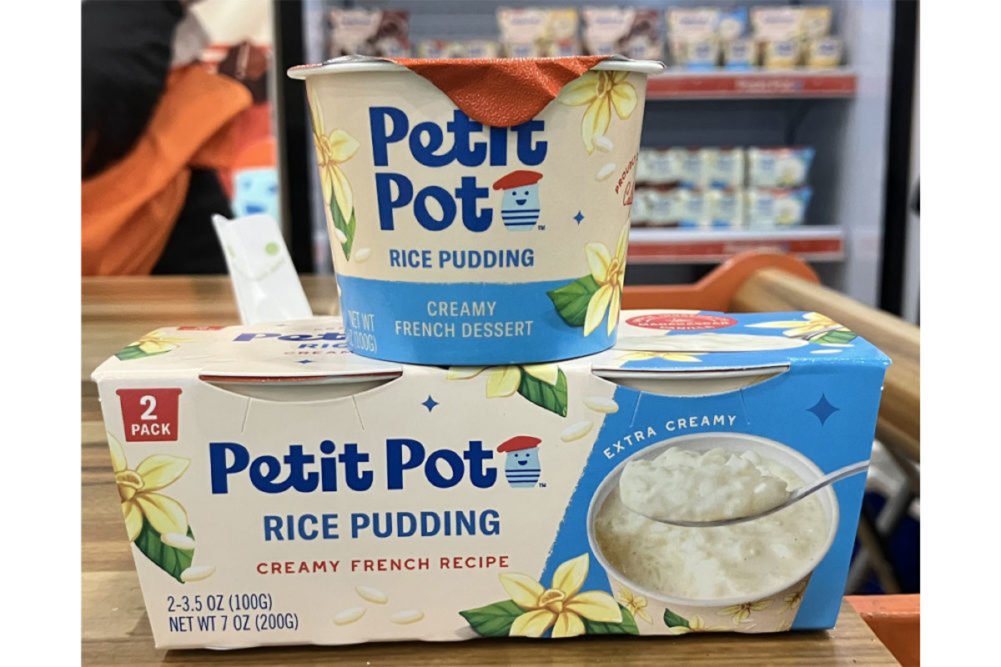CHICAGO — Many consumers put packaging waste and, more broadly, concerns about sustainability on the back burner during the pandemic. But reducing packaging waste has returned as an attribute that is influencing purchasing decisions.
Consumers recognize packaging is a necessity; that it helps ensure product quality and safety, while communicating nutrition information and preventing food waste. However, more consumers also believe the benefits should not come at the expense of the planet.
Reducing packaging materials and improving their recyclability help contribute to a more sustainable and circular economy. And consumers want to know that the companies they buy products from are doing their part. Food and beverage marketers are responding by switching to more sustainable packaging and communicating these changes to shoppers.
At the end of 2023, Chicago-based Kellanova announced it had reduced the amount of plastic — compared to the same volume the previous year — used in the packaging of three popular snack brands: Cheez-It Snap’d, Cheez-It Puff’d and Club Crisps. The packaging designs were optimized, reducing the total material weight for the three products by 672,000 lbs, reducing 124,000 lbs of plastic and reducing 548,000 lbs of corrugated cardboard used for shipping cases annually.
The packaging design aligns with Kellanova’s commitment to work toward packaging that is 100% reusable, recyclable or compostable by the end of 2030. Kellanova also has a goal to reduce virgin (newly made) plastic by 5%.
Smaller companies also are capitalizing on consumer concerns around packaging waste and using their reduction efforts to differentiate themselves in the market. Dutch Farms, Chicago, for example, has introduced a new milk bottle.
“Our new 96-oz 100% recyclable plastic bottle has superior oxygen and ultraviolet barriers, which results in better natural milk flavor,” said Joel Boomsma, vice president. “Retail delivery does not require any boxes or crates. It simply comes spot packed with plastic overwrap.”
Petit Pot, Emeryville, Calif., has been known for its single-serve glass jars of refrigerated desserts. While the glass is recyclable, it is heavy, which increases distribution costs and its breakability is a deterrent to some retailers.
“We are now offering our fan-favorite Organic Rice Pudding in a paper-based pint format, which is made with over 80% paperboard from certified sustainable forests,” said Maxime Pouvreau, founder of Petit Pot. “The new package also allows us to get into the multi-serve space at Whole Foods and Sprouts at a reasonable price point. Each 14-oz container has four servings, allowing consumers to pair our rice pudding with toppings and share it with their loved ones.”
The conventional chocolate, vanilla and rice puddings also now come in two-packs of 3.5-oz paperboard containers. The light-weight cartons are recyclable.
Another refrigerated single-serve dessert marketer — Sweet Craft Dolceria, Oceanside, Calif. — also is transitioning out of glass into paper cups, which come with a spoon inside the lid.
Yaza Foods, Atlanta, is introducing American consumers to its traditional Mediterranean labneh, a versatile dairy product for spreading, dipping and more. For this roll out, the company is using a sustainable cardboard-plastic cup.
“We firmly believe in the authenticity of our food, emphasizing both flavor and ingredients,” said Karim Khalil, founder of Yaza. “This entails a steadfast commitment to excluding chemicals, preservatives and added sugars from our labneh. Our dedication goes beyond just creating wholesome products. We want our customers to feel good about supporting us. Integral to this experience is ensuring our packaging is not only sustainable, but also beneficial to them and the planet we call home.”
The innovative design and shape of the cup enhances the aesthetic appeal on the shelf, but also provides functional benefits, ensuring ease of handling and portion control for consumers, Khalil said. The cardboard wrap provides stability, so the plastic cup may be produced with thin walls. By using less plastic than other solutions, it delivers a reduced carbon dioxide footprint. The cup and wrap may be easily separated, which is important for recyclability. As the cup is always white or transparent, it produces “recyclates” that are not contaminated by inks.

